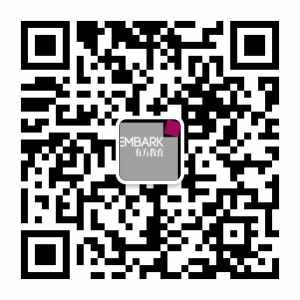- 翰林提供学术活动、国际课程、科研项目一站式留学背景提升服务!
- 400 888 0080
2018英特尔ISEF获奖作品摘要 系统软件 Intel Finalist Abstract Systems Software
获奖作品基本信息
| 年份 | 2018 |
| 学科 | 系统软件 Systems Software |
| 国家/州 | United State of America |
获奖作品名称
Implementing Deep Learning Techniques to Detect Abnormal Cells
获奖作品摘要
Diseases that cause visually abnormal cells affect millions of individuals around the world. In developing countries, these diseases are traditionally diagnosed by having a trained scientist spot those abnormal cells in a blood smear. However, this process is expensive because scientists trained to detect these diseases are scarce. The process is tedious as well, allowing room for error or misdiagnosis. Automating this process can bring the level of work from the scientist level to the technician level. This will not require a scientist to analyze blood smears by hand, and it can be implemented in places where access to sophisticated medical facilities is limited. A solution is a computer application that uses Java and Python to identify abnormal cells in blood smear images using deep learning technology. The application uses a deep learning technique called transfer learning to utilize the best generic deep learning model available and retrain it with Tensorflow to detect abnormal cells. The technician can input a blood smear image and have the application scan the blood smear for cells and extract them as individual images. The retrained deep learning model then classifies these individual images, and the application outputs relevant results and an image of the blood smear with the cells identified whether they are healthy or unhealthy. It is planned to expand on this concept to detect other diseases and to karyotype chromosomes. The ultimate goal is to make diagnosing abnormal cell diseases more accessible in the developing world.
高中生科研 英特尔 Intel ISEF
资讯 · 课程 · 全程指导
请扫码添加微信好友

[vc_btn title="联系电话:(021) 63526628" color="black" align="center" css_animation="fadeIn" link="url:tel%3A02163526628||target:%20_blank|rel:nofollow"]
高中生科研学术活动 英特尔 Intel ISEF 简介
英特尔国际科学与工程大奖赛,简称 "ISEF",由美国 Society for Science and the Public(科学和公共服务协会)主办,英特尔公司冠名赞助,是全球规模最大、等级最高的中学生的科研科创赛事。ISEF 的学术活动学科包括了所有数学、自然科学、工程的全部领域和部分社会科学。ISEF 素有全球青少年科学学术活动的“世界杯”之美誉,旨在鼓励学生团队协作,开拓创新,长期专一深入地研究自己感兴趣的课题。
>>> 实用链接汇总 <<<
· 数学 · 物理 · 化学 · 生物 · 计算机 · 工程 ·
学科简介:系统软件 Systems Software
The study or development of software, information processes or methodologies to demonstrate, analyze, or control a process/solution.
Subcategories:
Algorithms (ALG): The study or creation of algorithms - step-by-step procedure of calculations to complete a specific task in data processing, automated reasoning and computing.
Cybersecurity (CYB): Studies involving the protection of a computer or computer system against unauthorized access or attacks. This can include studies involving hardware, network, software, host or multimedia security.
Databases (DAT): Studies that create or analyze data organization for ease of access, management and update.
Human/Machine Interface (HMC): Software application that presents information to a user about the state of a process and to accept and implement the operator’s control instructions.
Languages and Operating Systems (LNG): Studies that involve the development or analysis of artificial languages used to write instructions that can be translated into machine language and then executed by a computer or system software responsible for the direct control and management of hardware and basic system operations of a computer or mobile device.
Mobile Apps (APP): A study involving a software application developed specifically for use on small, wireless computing devices. These studies may include front-end development techniques, such as user interface design and cross-platform support, and/or back-end development techniques, such as data services and business logic.
Online Learning (LRN): Studies that focus on utilizing electronic technologies to access educational curriculum outside of a traditional means. Studies explore the design of learning activities and programs with online technologies, as well as the effective use of e-learning systems.
Other (OTH): Studies that cannot be assigned to one of the above subcategories. If the project involves multiple subcategories, the principal subcategory should be chosen instead of Other.

最新发布
© 2026. All Rights Reserved. 沪ICP备2023009024号-1









